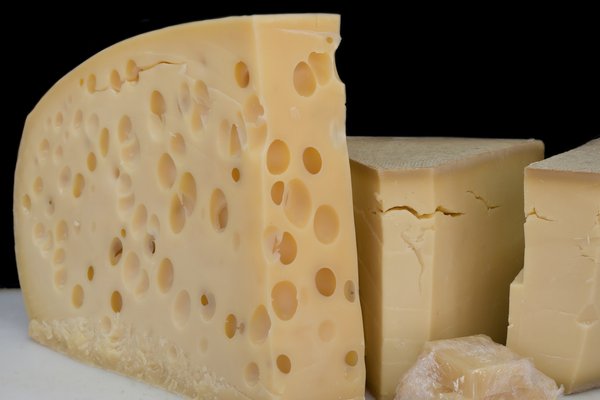Cheddar

Have you ever thought about giving your dog cheddar? Cheddar is a popular cow's milk cheese that originally comes from England. It has a tangy taste and a firm consistency. But is cheddar also suitable for dogs? In this article, you can find out more about the advantages and disadvantages of cheddar for your four-legged friend.
What is cheddar?
Cheddar is a hard cheese that is made by heating and pressing milk. The whey is separated and the cheese mass is pressed into molds. The cheese then matures for several months to years, depending on the variety. During this process, it develops its typical yellow to orange color, which is created by the addition of annatto, a natural plant dye. Cheddar has a high fat and protein content and also contains calcium, phosphorus and vitamin A.
What are the benefits of cheddar for dogs?
Cheddar can have several benefits for dogs when fed in moderation. On the one hand, it can be used as a reward or treat, for example during training or as a snack between meals. On the other hand, it can promote dental health, as plaque and tartar are removed when chewing. It can also aid digestion as it contains probiotics that improve the intestinal environment. Finally, it can strengthen the immune system as it provides antioxidants and vitamins.
What are the disadvantages of cheddar for dogs?
Cheddar also has some disadvantages for dogs that need to be considered. Firstly, it can lead to obesity if it is fed too often or in too large quantities. This is because cheddar contains a lot of calories and fat, which can quickly build up. On the other hand, it can lead to digestive problems if your dog is lactose intolerant or has an allergy to dairy products. This can lead to diarrhea, flatulence or vomiting. It can also lead to high cholesterol or salt levels in the blood, which can increase the risk of cardiovascular disease.
How much cheddar can my dog eat?
If you want to give your dog cheddar, you should follow a few rules. Firstly, you should only buy high-quality cheddar that does not contain any artificial additives or preservatives. Secondly, you should only feed small amounts, for example one small piece per day or less. Thirdly, you should always observe how your dog reacts to the cheese. If he shows signs of intolerance, you should stop feeding the cheese immediately.
Cheddar is a delicious cheese for humans, but not necessarily for dogs. Although it has some advantages, it also has some disadvantages. It should therefore only be fed in moderation and with caution.
If you notice any signs of hypersensitivity or poisoning in your dog, you should see your vet immediately. We are not a substitute for a vet, but we try to be as accurate as possible. Every dog reacts differently and we recommend you get a second opinion or consult your vet if in doubt.
Stay healthy and take good care of your four-legged friend!😊
Similar to Cheddar
Gouda is a semi-soft semi-hard cheese from the Netherlands. It is made from pasteurized or raw cow's milk with the addition of rennet and lactic acid bacteria. The cheese mass is pressed into molds...
Colby cheese was first produced in 1885 in the town of Colby in Wisconsin. It is named after its place of origin and is considered a typical American cheese. It is produced in a similar way to...
Cheese can be a tasty treat for dogs that also has health benefits. Edam cheese contains a lot of protein, which is important for muscle building and cell regeneration. It also provides calcium,...
Red Leicester is a traditional English hard cheese, originally from the county of Leicestershire. In contrast to its milder cousin, Cheddar, Red Leicester is characterized by a somewhat crumbly...



